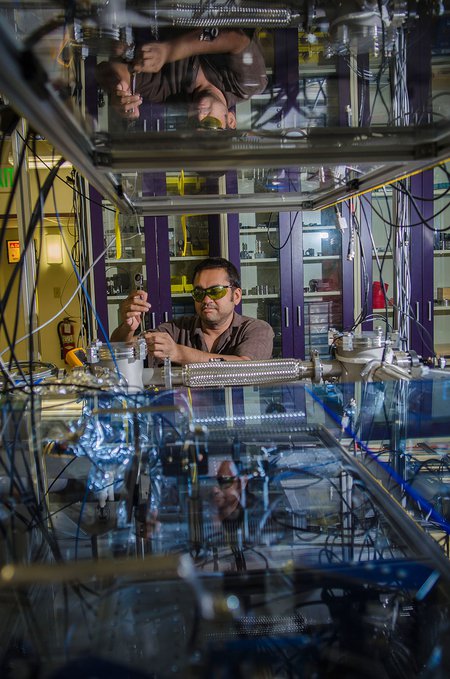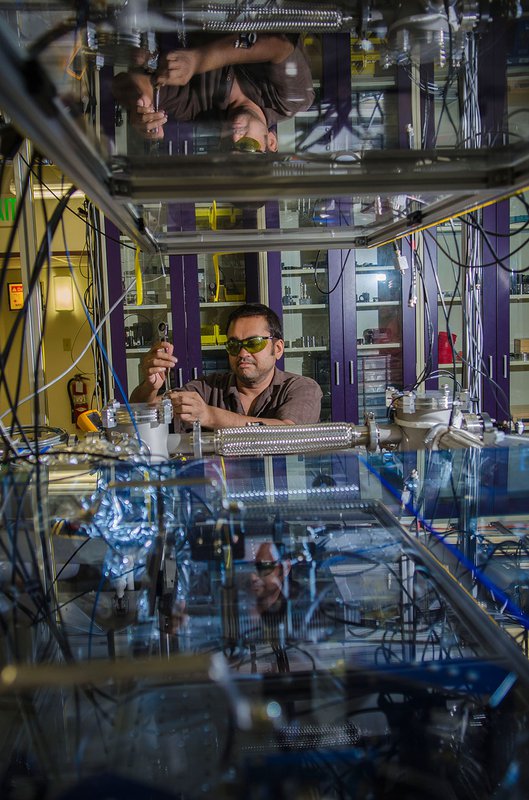Two Caltech scientists have been named winners of 2019 New Horizons Breakthrough Prizes.
Rana Adhikari, professor of physics, is being honored with the New Horizons in Physics Prize for "research on present and future ground-based detectors of gravitational waves," according to the award citation. He shares the prize with Lisa Barsotti and Matthew Evans (PhD '02) of MIT.
Maksym Radziwill, professor of mathematics at Caltech, is being honored with the New Horizons in Mathematics Prize for "fundamental breakthroughs in the understanding of local correlations of values of multiplicative functions." He shares the prize with Kaisa Matomäki from the University of Turku, Finland.
The Breakthrough Prizes recognize the world's top scientists in life sciences, fundamental physics, and mathematics. According to their website, "the disciplines that ask the biggest questions and find the deepest explanations are the fundamental sciences." In addition to the primary Breakthrough Prizes, worth $3 million, up to three $100,000 New Horizons in Physics Prizes and up to three New Horizons in Mathematics Prizes are given out each year to early-career researchers who have already produced important work in their fields.
Adhikari is a key member of the Laser Interferometer Gravitational-wave Observatory (LIGO) team, which made the first-ever direct observation of gravitational waves in 2015. The waves—ripples in space and time—came from a pair of colliding black holes. LIGO has since detected gravitational waves from other cosmic events, including the collision of two neutron stars. Adhikari's interests lie in fundamental physics, including tests of gravity and quantum mechanics. His group focuses on further improving LIGO's measurements of black holes by exploring the limits of quantum measurements, and using those black holes to measure the shape of the universe.
Radziwill works in analytic number theory, a field using methods of analysis to understand properties of the integers. He is particularly interested in the interactions of analytic number theory with other fields of mathematics, specifically probability, spectral theory, and harmonic analysis. His recent work with Matomäki further pushes our understanding of the factorization of the integers into prime numbers, by establishing, among other things, that there is no hidden bias in the factorizations of consecutive numbers into prime numbers.
 Maksym Radziwill
Credit: Maksym Radziwill
Maksym Radziwill
Credit: Maksym Radziwill
 Rana Adhikari
Credit: Caltech
Rana Adhikari
Credit: Caltech

